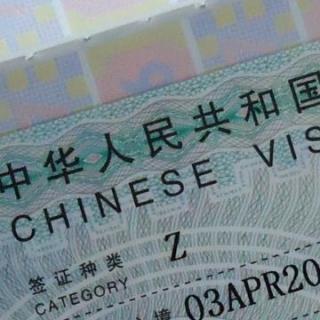
介绍:
20160913ou 一中两外锵锵三人行
今日话题: 中国计划对外籍人士工作签证制度进行改革
NL: So the powers that be are trying to attract more highly skilled talent into China, as is always the case with the visa system. To achieve that end they are looking to categorize the types of work visas that foreigners are able to get. Currently if you want to work in China, there are two different types of work permits that you can apply for. One of them is called an employment license for foreigners and that comes from the ministry of human resources and social security, and the other one is in my experience at least, the most common visa that foreigners have in Beijing which is the foreign expert work permit which comes from the state administration of foreign experts and affairs. So currently there are those two kinds but they are all going to be streamlined into the same system. A trial is going to be going on in some cities and it will be rolled out further in some cities if that trial is a success.
LW: The current visa system is set up for a planned economy, one that is growing toward the future, where it was very much like, get people in for those valuable skills as much as you can. And now that China is an economic giant it needs to be attracting skills that are harder to cultivate domestically. As things stand those skills are going to become much more high-level as it were than what they were in the past.
NL: I think clearing up the system works in terms of how wanting to attract foreign workers into China [is important]. Having successfully managed to get a visa working in China, I think the level of documents that you need and the procedures that you have to go through, compared to other countries in the world, isn’t necessarily that stringent or that difficult to get the kind of documents that you need. But the process is so poorly explained that sometimes people don’t know what to do and this is where the problem arises. It’s very difficult to find accurate information to draw on when you’re making those applications sometimes.
LW: I will say that we don’t know a lot about this process, I think that it is being rolled out now in the bigger areas, and then hopefully it will filter down to other metropolitans. We don’t know all of the details, but we do know about the A the B and the C track. The A would be like a kind of a top level the B would be in the middle and the C would be (not undesirable) but less desirable than the B and the C.
WY: I would say that there are plenty of job opportunities in China, and there will be plenty more, so welcome to China.
大家还在听

